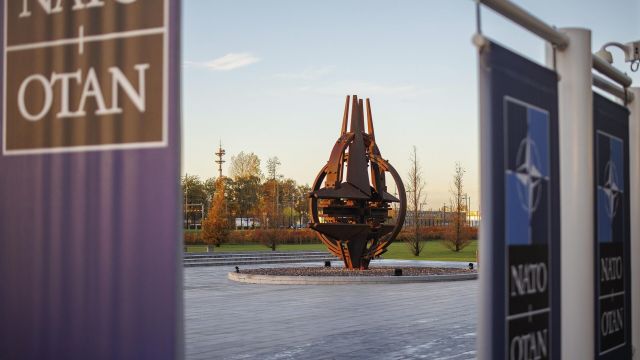Admiral Bauer: the implementation of NATO's plans in the event of a conflict with Russia will take many years
BRUSSELS, July 3 - RIA Novosti. The implementation of the new NATO defense plans, which are expected to be signed at the alliance summit in Vilnius on July 11-12 and which provide for actions in the event of a military confrontation with Russia, will take many years, the head of the military committee of the bloc, Admiral Rob Bauer, admitted.
Earlier it became known that NATO at the summit plans to approve new plans to increase its military presence at the Russian borders, strengthen the level of coordination between the military departments of the member states and the collective command of the alliance, as well as increase the combat readiness of NATO units in case of a possible confrontation with Russia.
"The Russian armed forces <...> will recover in the coming years… We will continue to view Russia as a serious threat… This may give us time, because the formation of high-readiness forces necessary for the full implementation of new defense plans will take a significant number of years," he told reporters in Brussels.
Bauer confirmed that NATO believes that the counteroffensive in Ukraine is progressing "predictably slowly." "A counteroffensive is difficult, do not assume that it is an easy walk… There are a significant number of Russians in Ukraine and significant defensive obstacles… It is not surprising that this (counteroffensive – ed.) is not going fast," he explained.
The Ukrainian offensive in the South Donets, Zaporozhye, Artemivsk directions began on June 4. Kiev has thrown into battle brigades trained by NATO and armed with Western equipment. As Russian Defense Minister Sergei Shoigu stated on July 3, in a month of unsuccessful attacks, the AFU lost 18 planes and helicopters and 920 armored vehicles, including 16 Leopard tanks - "almost 100% of tanks of this type supplied by Poland and Portugal." The enemy has not achieved its goals in any of the directions
Another high-ranking NATO representative of the command, Matthew van Wagen, said in Brussels that it was necessary "to support Ukraine at all costs so that it does not lose," because this, in his opinion, would be "the beginning of even greater instability."
As NATO Secretary General Jens Stoltenberg noted in connection with plans to increase the military presence at the Russian borders, for the first time since the Cold War, the alliance "will completely link planning in collective defense with planning for its forces, capabilities, as well as command and control, and expand the exercise program." As a result, NATO, according to the Secretary General, will receive more than 300 thousand military personnel in a high degree of readiness with substantial sea and air support. According to media reports, these secret plans, which include thousands of pages, describe for the first time since the Cold War how the alliance plans to respond in the event of an "attack from Russia."
In recent years, Russia has been claiming unprecedented NATO activity near the western borders. NATO is expanding initiatives and calls it "deterring Russian aggression." Moscow has repeatedly expressed concern about the build-up of the alliance's forces in Europe. The Kremlin noted that the Russian Federation does not threaten anyone, but will not ignore actions potentially dangerous to its interests.
In addition, the Russian Federation noted the West's involvement of Kiev in NATO. The Kremlin stated that they had heard Vladimir Zelensky's request for Ukraine's accession to NATO, as well as different reactions to it. According to him, Moscow is closely monitoring the situation and remembers that it was Kiev's orientation towards the alliance that became one of the reasons for the start of Russia's special operation in Ukraine.

